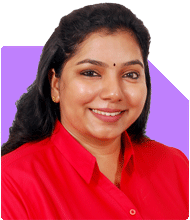How to Allocate 60K Monthly MF Investments for Daughter's Education, Marriage & Retirement?
Ramalingam Kalirajan |7466 Answers |Ask -Follow
Mutual Funds, Financial Planning Expert - Answered on Jan 07, 2025
He has an MBA in finance from the University of Madras and is a certified financial planner.
He is the director and chief financial planner at Holistic Investment, a Chennai-based firm that offers financial planning and wealth management advice.... more

Hello, I am looking for MF portfolio advice for my investments. I am planning to invest 60K monthly with 10% yearly stepup in MF to create corpus for my future goals. * Daughter higher studies: corpus ~3cr, time: 18yrs * Daughter marriage: corpus ~1cr, time: 24yrs * Retirement planning: Sufficient for me and my wife, time: 25 yrs Please suggest proper breakups, which MF should i go for. (Currently i am investing in Index funds only...50% Nifty50, 30% Nifty Next50, 20% Nifty Midcap 150...)
Drawbacks of Index Fund Investments
Lack of Flexibility: Index funds mirror the market, offering no scope for outperformance. Actively managed funds, however, provide flexibility to adapt to market conditions.
Sectoral Concentration: Index funds often have higher weights in specific sectors. This increases risks during sector downturns.
Missed Opportunities: Index funds do not benefit from opportunities outside the index universe.
Tax Inefficiencies: While index funds save on fund management fees, their passive nature may lead to frequent portfolio adjustments, triggering short-term capital gains (STCG) taxes.
To optimise your investments, transitioning to a mix of actively managed funds is recommended.
A Comprehensive Investment Plan for Your Goals
1. Daughter’s Higher Studies (Corpus: Rs. 3 crore, Time: 18 years)
Focus on equity-oriented funds with exposure to large-cap, mid-cap, and flexi-cap categories.
Use SIP mode for disciplined investment. Allocate 50% of your monthly SIPs here initially.
Review and rebalance this portion every 3 years to align with market trends.
2. Daughter’s Marriage (Corpus: Rs. 1 crore, Time: 24 years)
Invest in a mix of mid-cap funds and hybrid funds to balance growth and stability.
Allocate 30% of your SIPs to this goal. As the timeline shortens, shift towards debt-oriented funds to reduce risks.
3. Retirement Planning (Time: 25 years)
For retirement, diversify into equity funds with some allocation in balanced advantage funds.
Ensure 20% of your SIPs flow here initially. Gradually increase allocation in safer instruments like debt mutual funds as you near retirement.
Proposed Monthly Investment Allocation
Daughter’s Higher Studies: Rs. 30,000
Daughter’s Marriage: Rs. 18,000
Retirement: Rs. 12,000
With the 10% annual step-up, maintain proportional increases across all goals.
Suggested Mutual Fund Categories
Large-Cap Funds
Offer stability and steady growth. Ideal for higher education and retirement goals.
Mid-Cap Funds
Potential for higher returns. Suitable for long-term goals like marriage and education.
Flexi-Cap Funds
Provide diversification by investing across large, mid, and small-cap stocks.
Balanced Advantage Funds
Balance equity and debt dynamically. Add stability to retirement planning.
Debt Funds
For short-term needs and to lower portfolio risk as goals near.
Key Portfolio Management Tips
Regular Monitoring: Review your portfolio semi-annually to ensure alignment with goals.
Systematic Transfer Plans (STPs): Gradually move equity investments to debt funds closer to goal timelines.
Tax Planning:
Equity Mutual Funds: LTCG above Rs. 1.25 lakh taxed at 12.5%.
Debt Funds: Both LTCG and STCG taxed as per your income tax slab.
Leverage these rules while rebalancing your portfolio.
Emergency Fund: Maintain 6-12 months of expenses in liquid funds or savings accounts to handle contingencies.
Insights on Direct vs. Regular Funds
Direct Funds: Require constant tracking and knowledge to optimise. Not suitable for most investors.
Regular Funds via a CFP:
Offers personalised advice tailored to your goals.
Simplifies rebalancing and tax optimisation.
Ensures access to a diversified, well-managed portfolio.
Investing with the guidance of a Certified Financial Planner ensures structured decision-making and goal alignment.
Final Insights
Your current commitment to investing and goal clarity is praiseworthy. However, fine-tuning your strategy is essential for optimal outcomes. Diversify beyond index funds, embrace actively managed funds, and align investments with your unique goals and timelines.
With disciplined execution, periodic reviews, and professional guidance, you can achieve financial security for yourself and your family.
Best Regards,
K. Ramalingam, MBA, CFP,
Chief Financial Planner,
www.holisticinvestment.in
https://www.youtube.com/@HolisticInvestment
Best Regards,
K. Ramalingam, MBA, CFP,
Chief Financial Planner,
www.holisticinvestment.in
https://www.youtube.com/@HolisticInvestment
You may like to see similar questions and answers below
Ramalingam Kalirajan |7466 Answers |Ask -Follow
Mutual Funds, Financial Planning Expert - Answered on May 29, 2024
Ramalingam Kalirajan |7466 Answers |Ask -Follow
Mutual Funds, Financial Planning Expert - Answered on Oct 11, 2024
Ramalingam Kalirajan |7466 Answers |Ask -Follow
Mutual Funds, Financial Planning Expert - Answered on Oct 11, 2024
Milind Vadjikar |841 Answers |Ask -Follow
Insurance, Stocks, MF, PF Expert - Answered on Oct 11, 2024
Pushpa R |40 Answers |Ask -Follow
Yoga, Mindfulness Expert - Answered on Jan 08, 2025
Patrick Dsouza |917 Answers |Ask -Follow
CAT, XAT, CMAT, CET Expert - Answered on Jan 08, 2025
Patrick Dsouza |917 Answers |Ask -Follow
CAT, XAT, CMAT, CET Expert - Answered on Jan 08, 2025
Ramalingam Kalirajan |7466 Answers |Ask -Follow
Mutual Funds, Financial Planning Expert - Answered on Jan 08, 2025
Ramalingam Kalirajan |7466 Answers |Ask -Follow
Mutual Funds, Financial Planning Expert - Answered on Jan 08, 2025
Ramalingam Kalirajan |7466 Answers |Ask -Follow
Mutual Funds, Financial Planning Expert - Answered on Jan 08, 2025
Shalini Singh |142 Answers |Ask -Follow
Dating Coach - Answered on Jan 08, 2025
Shalini Singh |142 Answers |Ask -Follow
Dating Coach - Answered on Jan 08, 2025
Rajesh Kumar Singh |29 Answers |Ask -Follow
IIT-JEE, GATE Expert - Answered on Jan 07, 2025
Anu Krishna |1431 Answers |Ask -Follow
Relationships Expert, Mind Coach - Answered on Jan 07, 2025



























